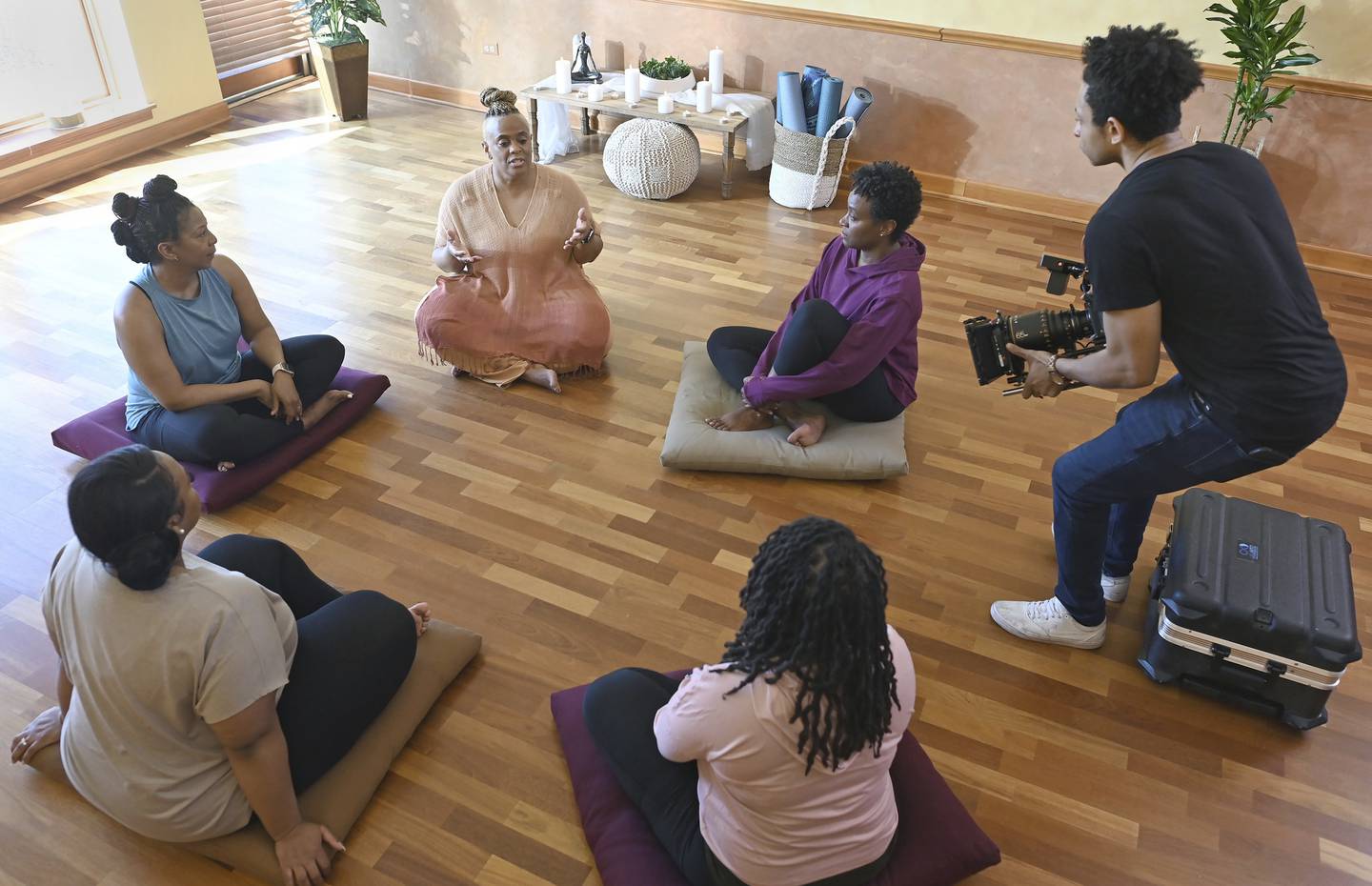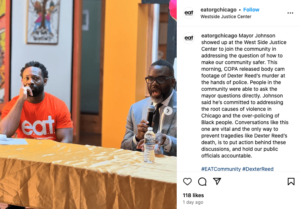You’d think more than 20 years into a chosen career, not many things can surprise.
That’s not the case with Kim Peavler, an anesthesiology nurse at Northwestern Medicine Central DuPage Hospital. It was while she was regularly visiting her mother at Marianjoy Rehabilitation Hospital in Wheaton that Peavler noticed the site had a meditation room.
Advertisement
“I was like, ‘Wow,’ because you don’t see the two mix,” Peavler said. “That’s more of an alternative form of health care to people who do medicine. Shortly after that, I learned that our hospital also had resiliency rooms.”
Seeing how her hospital was moving in the space, Peavler wanted to know how she could be a part of it, and pivoted. She found an accredited master’s program in mindfulness studies at Lesley University in Cambridge, Massachusetts, and enrolled. That was in 2020 after George Floyd’s murder, Peavler recalls.
Advertisement
“When I got to school, I was able to put a language to so many things that I didn’t know anything about,” she said. “And then I wondered how many other people didn’t know about internalized oppression and how that presents itself.”
During her educational deep dive (Peavler will graduate in 2023), Peavler has learned things like: It’s not what we eat, it’s why we eat; and addressing any issues of comorbidity/mortality rates of Black women cannot happen without speaking about racism and what that looks like for the population.
“That is happening. But what is happening inside of you, as well — that internalized oppression, the things that you don’t talk about? Black women, we are about grinding, we’re about the work let’s get this work done. ‘I don’t have no time for feelings’ and ‘Who’s gonna do this if I don’t do it?’ Attention is not paid to our emotional health.”

Peavler, also a holistic registered nurse, certified life coach and mindfulness meditation facilitator/practitioner, started Melan Mind, a company wherein she teaches Black women the art of being present as an antidote to stress — stress that Peavler says many Black women deny.
“If you survey most Black women, and ask them are they stressed, they’re going to tell you no. Unless it’s an acute thing like I lost my job, I can’t pay the bills,” Peavler said. “They can admit it in those acute situations … but mortality and morbidity rates of Black women is linked to chronic stress, hypertension, diabetes, and heart disease. Hypertension means there’s pressure in your body, your body is not at ease, and it’s tense. Anything that is tense and tight, after a while it’s going to pop.”
Peavler doesn’t want that pop to come. That’s why she’s been teaching a weekslong course called the MIND program. It was created for Black women, bringing mindfulness and collective cultural aspects from Black ancestry together.
“The M stands for mindfulness and movement and there are the four I’s, which are intimacy, integration, imagination, and inspiration. And the N is nurture and nourishment. Then the D is design,” Peavler said.
Mindfulness activities are done, with focus on breathing, listening, and hand washing, as a way to be present through everyday tasks. Less looking for the big things in life to happen, in favor of seeing joy in the little things — everything from eating with intention, the art of crocheting, mirror exercises and making a deeper connection with your hair and scalp.
Advertisement
“The design is taking these aspects of what you’ve learned about mindfulness and the practices and then how are you going to create a life that is more intentional and more on purpose?” Peavler said. “We don’t necessarily know how to appreciate ourselves outside of what we do. Because we do this in a community with other Black women, it’s about finding that space in you that is OK with who you are without any work attached to it.”

Peavler is a peer leader and coach in the Central DuPage Hospital Resiliency Coach Program, which enables her to use mindfulness in her everyday work. She also introduces mindfulness to communities through Melan Mind workshops where she also incorporates West African dance and kemetic yoga, yoga that has roots in Africa. All are done in effort to support and empower Black women on their path to transforming pain into healing. For those who want to go deeper with mindfulness, they can join the Melan Mind community and/or partake in one-on-one sessions with Peavler for mindfulness coaching. Her goal is to have a retreat center in the area.
“Most people don’t like to get quiet and be still … it has a lot to do with emotions,” Peavler said. “If you’re a Black American, if you trace this back to slavery, there was no time for emotion — it was survival. You needed to do these things to be here, to not become extinct. I contribute a lot of what we’re feeling is emotional irregularity. We don’t necessarily know how to regulate our emotions because we don’t have an experience of feeling the emotions.”
After two years in the pandemic, Peavler says she’s seen people wanting to get back to a sense of connection after being isolated. More people are willing to be a bit more vulnerable, to find that connection with self and others. In addition to her in-person work, Peavler is creating a 90-minute documentary, “Culture Meets Presence,” related to her work. She started a GoFundMe to help raise funds for it. She hopes to shop the finished product around to Black-owned networks like OWN and BET.
“We’re starving to be heard and to be seen, and the only way you can do that is you have to show up, and you have to speak, but at the same time, we still need these spaces of healing — spaces where you feel comfortable enough to speak and to show up and know that someone’s going to hold space for you for that,” Peavler said. “None of that is necessarily easy, but I believe that people want that and this is what I would like to create.”
Cassie Smith, 36, of Aurora, is one such person. As a middle school social worker in Oswego she’s familiar with mindfulness and self-care, as things she teaches others. She had tried meditation apps before, but in-person meditation with Peavler was more of a reminder for maintaining self-care.
Advertisement
“it reminds me it’s OK for me to not be OK; not to have it all on my shoulders and do it all by myself,” she said. “I can take a break and I don’t have to judge myself for taking that break or worry about what other people may think because I am taking that break.”
She’s always telling her friends about Peavler’s work. Smith is participating in the documentary.
“I find myself when I try to take time to do yoga or meditate, my brain is constantly: ‘You should be cleaning up, or doing this, or you have this coming up,’” Smith said. “It’s time to change our thoughts and how we handle things … to take that time out of what you feel you have to do to do the things that are good for you to keep you going.”





